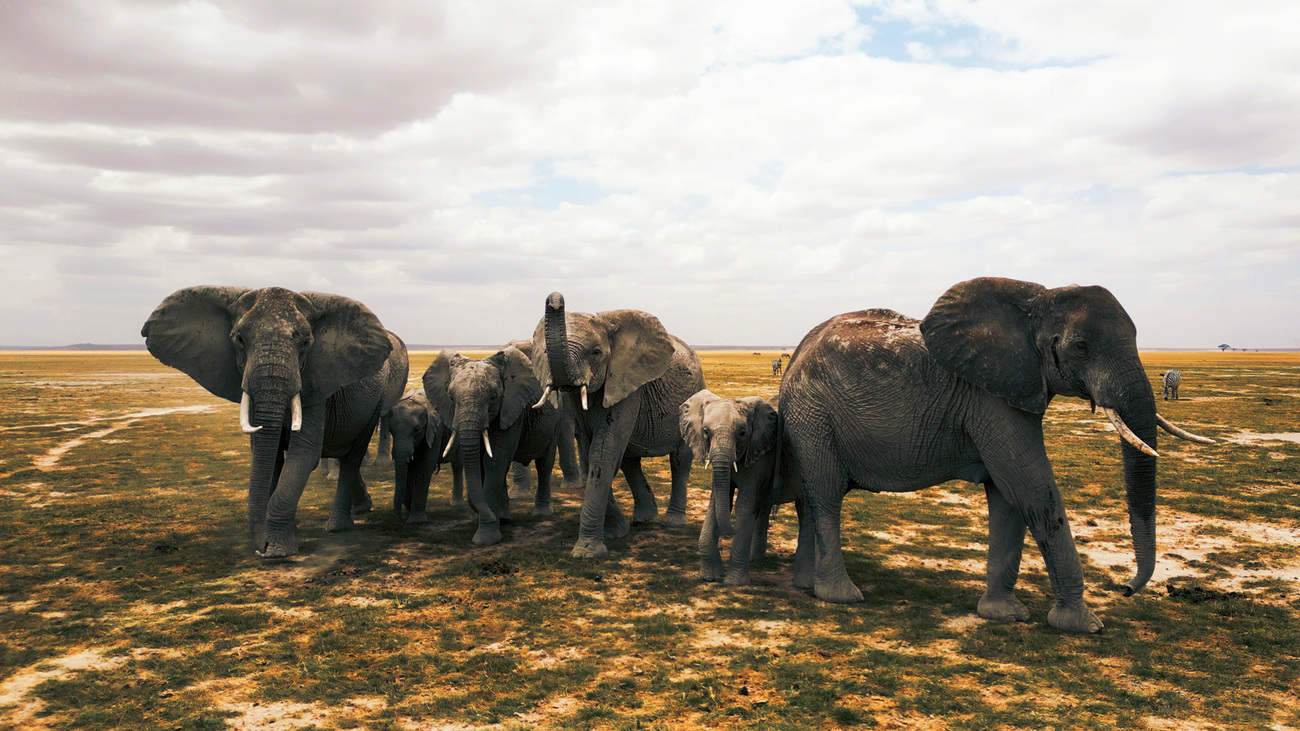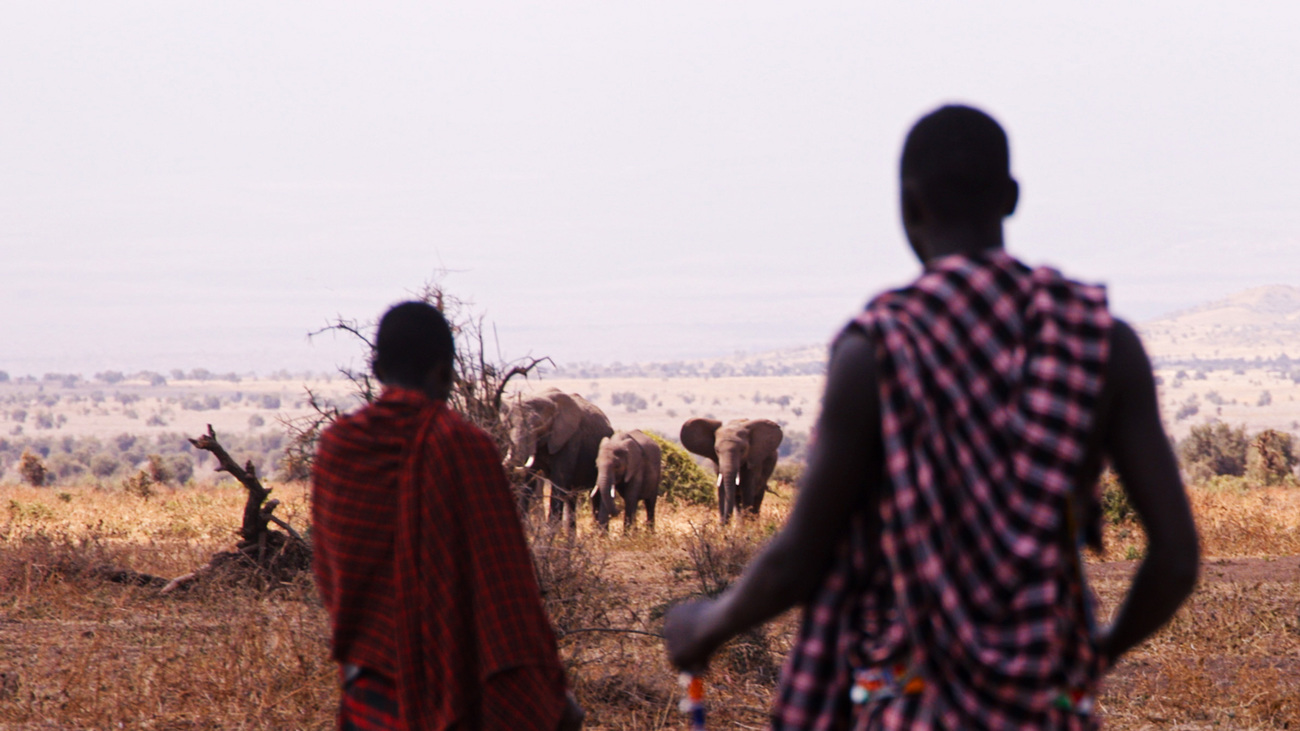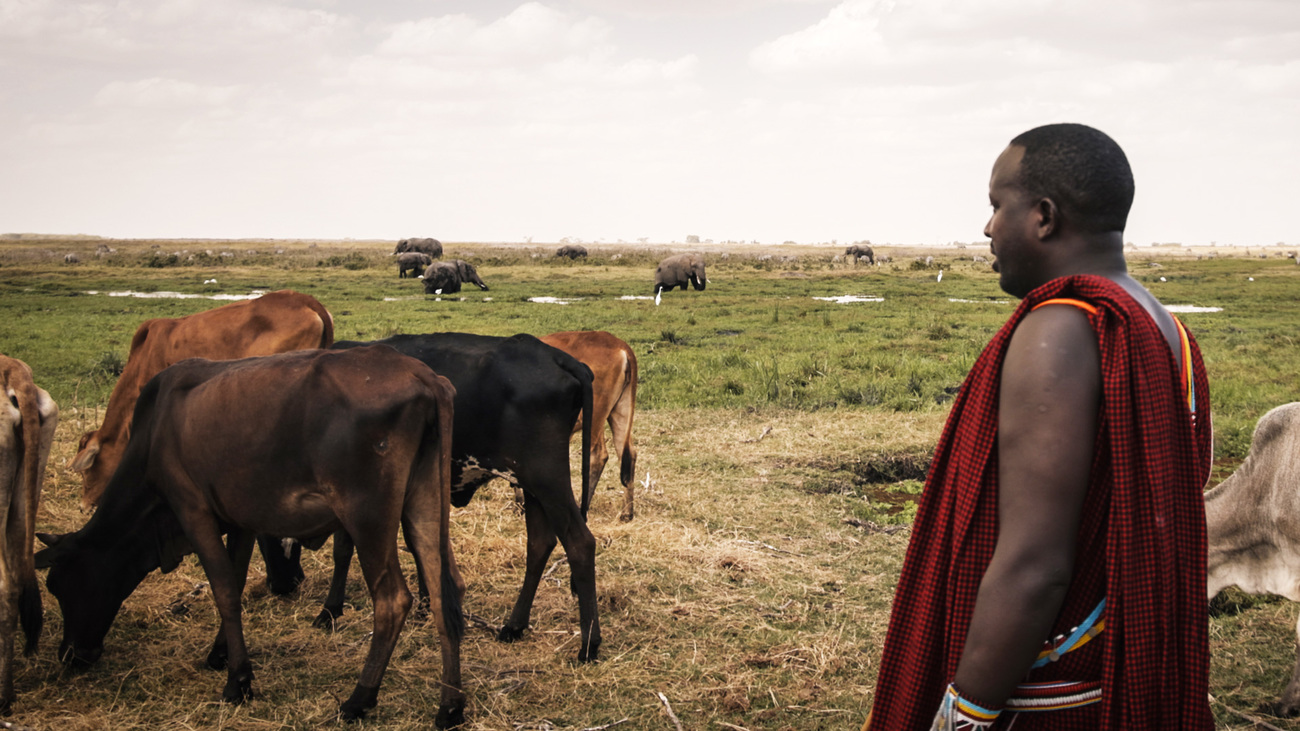Only a joint effort will save elephants and protect communities from climate change
Only a joint effort will save elephants and protect communities from climate change

Around 648 million people worldwide live on less than US$2.15 a day. Many of them frequently have to compete with wildlife for land, food, water, and other dwindling natural resources—a competition that is becoming ever more fraught as rising temperatures and changing rainfall patterns make these resources scarce.
This scarcity forces many vulnerable people to move deeper and deeper into wild territory to collect the water, food, and firewood they need to survive.
Meanwhile, endangered and critically endangered animals, such as elephants, find their home ranges and routes for movement fragmented by new farms, villages, cities, and infrastructure.
As megaherbivores that eat up to 160 kilograms of forage and drink up to 190 litres of water per day, elephants need to roam across vast landscapes. Along the way, they may come into conflict with people. Crop raiding and property damage are the most common forms of human-elephant conflict, but when elephants’ defensive behaviours are triggered, they can also seriously injure or kill people.
This conflict leads some communities to protect themselves with fences that further fragment elephants’ migratory territory or to retaliate by killing elephants.
The world’s three remaining elephant species are all on the IUCN’s Red List of Threatened Species, and all three are decreasing in numbers. This is particularly worrying because elephants are keystone species—species that are critical for the survival of others in their ecosystems. If elephants become extinct, not only is it a tragedy for elephants themselves, but it could also cause the collapse of entire ecosystems.
That’s why—next to habitat loss—human–wildlife conflict is one of the biggest threats to wildlife protection and conservation efforts.

What the solution is…and isn’t
The challenges facing these human and wildlife communities are so interconnected that it’s impossible to solve one without addressing the others. To protect both biodiversity and people, we must promote peaceful coexistence. To do that, we have to take an approach that values both natural and human systems.
We’ve seen what happens when conservation and human development organisations work in parallel. A common example is when waterpoints are built without consultation with local wildlife experts, who know the movement patterns of various species. These waterpoints can end up trampled or damaged by wildlife, or communities become understandably reluctant to use them if it means risking an encounter with a herd of elephants or pride of lions.
Those of us working to conserve nature know that we will only succeed if we create a more secure future for the families who live close to and with wildlife. That’s why we invest in or take on development projects that, at first glance, may not seem directly related to our area of expertise, conservation.
While organisations like IFAW should be working on interconnected programmes to address these complex issues, we need to be careful about overextending ourselves beyond our areas of expertise, for several reasons.
Firstly, mission creep takes our resources away from our core focus areas and could potentially harm our effectiveness in those areas, as we have to invest time, energy, and funding into gaining knowledge and skills that other organisations already have.
Secondly, we potentially take funding away from organisations that already have that knowledge and skills and could therefore make a bigger impact.
Finally, our development projects run the risk of either failing or necessarily staying small, because we don’t have the knowledge, skills, or sustainable funding to create change at lasting scale.
In other words, we’re no longer working in parallel—our work intersects with other organisations’ work—but we are still not achieving the change at the scale and speed necessary for the challenges that face us all.
That last point, for me, is key. IFAW has excellent results when working with communities. We hire or work with the experts we need, and we work closely with community leaders. But our projects are limited to the communities we work with. The successes we have with communities in conservation areas could be shared and spread to other communities facing similar challenges—but we need the right partners and funders who have the capacity for that kind of large-scale, holistic programming.
Our only chance of protecting vulnerable communities—whether human or endangered animal—from climate change is if conservation and community development specialists work in partnership, not in parallel or in competition.

The vital role of funders
The challenges we face require funders who can think beyond traditional boundaries, have the capacity to accept the risk of failure, and can invest in long-term, complex, multi-agency programs.
At IFAW, we have a massive vision, tremendous knowledge of conservation and land-use issues, and an excellent track record of community engagement in conservation work.
We’re asking governments, funders, and development organisations to include us and our expertise in their programs, so we can scale up our collective work.
We also need funders and community-engagement experts to collaborate with us on Room to Roam—a new and visionary approach to conservation in Africa, with elephants and people leading the way.
If we are to address the challenges climate change presents to all our communities, we must be bold in our partnerships and sharp in our focus. We’re not just open to working with partners from other sectors—we’re eager to.
Because we can only protect vulnerable wildlife and people from climate change if funders, conservationists, and community development organisations become bolder in their partnerships.
Related content
Our work can’t get done without you. Please give what you can to help animals thrive.